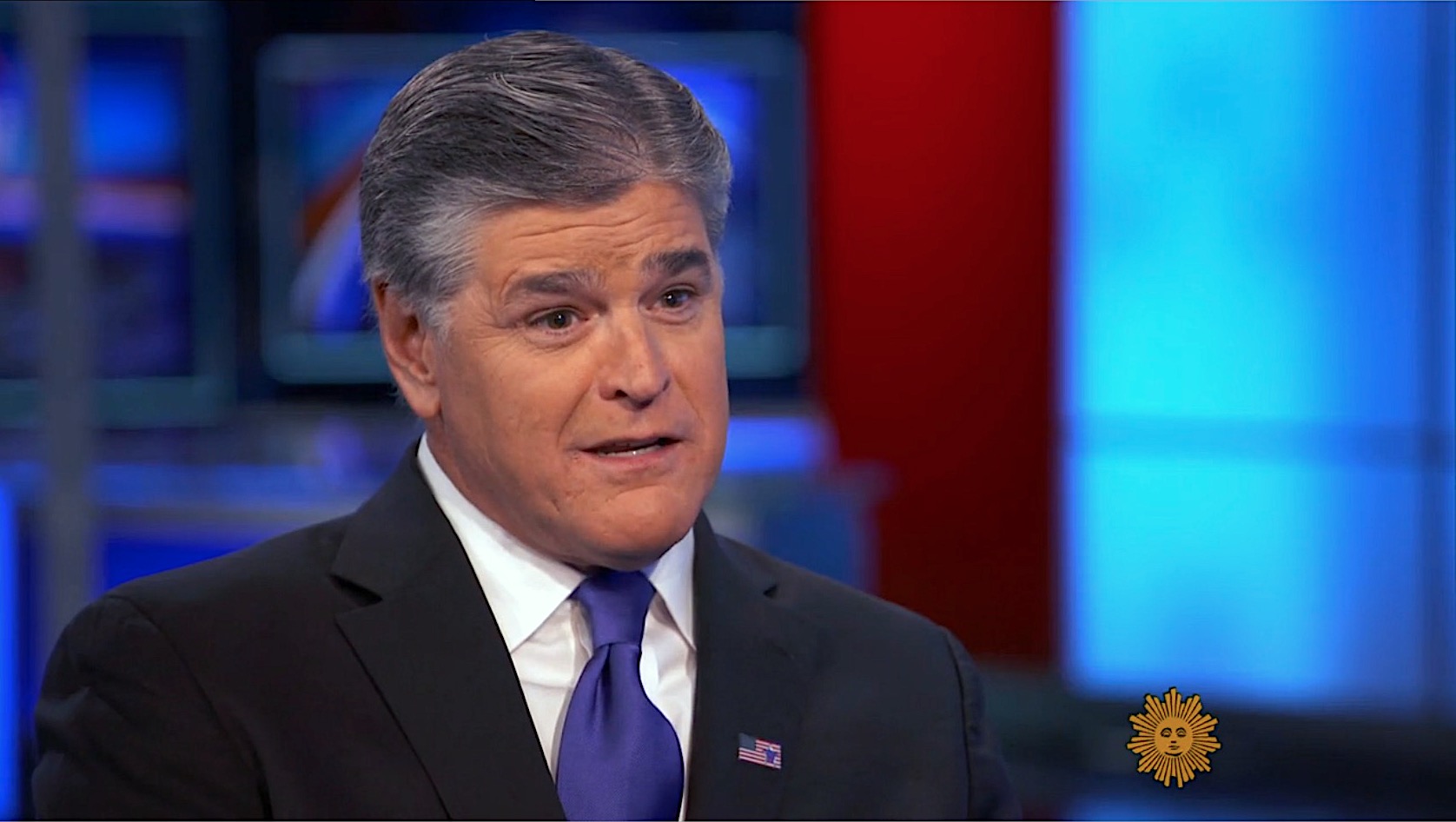Watch Ted Koppel tell Sean Hannity he thinks his Fox News show is bad for America


A free daily email with the biggest news stories of the day – and the best features from TheWeek.com
You are now subscribed
Your newsletter sign-up was successful
On CBS Sunday Morning, veteran TV news journalist Ted Koppel presented a 10-minute segment on the fracturing of the news media and how that has contributed to the widening, chasmic political divide in America. One of the people he spoke with was Fox News host Sean Hannity. Hannity argued that Koppel was selling the American public short in not being able to distinguish between news programs and opinion shows like Hannity. "Do you think we're bad for America?" he asked Koppel. "You think I'm bad for America?" "Yeah," Koppel said.
When Hannity looked surprised, Koppel began to explain, saying, "In the long haul I think you and all these opinion shows..." Hannity cut in and called that "sad," and amid a few more interruptions, Koppel told Hannity that "you're very good at what you do" but what he does features attracting "people who are determined that ideology is more important than facts."
Hannity hit back on Twitter later on Sunday, slamming CBS News for only showing what was probably the most interesting two minutes of a 45-minute interview and "daring" the network to release the entire video.
The Week
Escape your echo chamber. Get the facts behind the news, plus analysis from multiple perspectives.

Sign up for The Week's Free Newsletters
From our morning news briefing to a weekly Good News Newsletter, get the best of The Week delivered directly to your inbox.
From our morning news briefing to a weekly Good News Newsletter, get the best of The Week delivered directly to your inbox.
None of the other guests Koppel spoke with — White House Press Secretary Sean Spicer, New York Times editor Dean Baquet, and AEI scholar Norm Ornstein — complained on Twitter about their edited interviews. The whole 10 minutes is worth a watch, and you can view Koppel's report at CBS News.
A free daily email with the biggest news stories of the day – and the best features from TheWeek.com
Peter has worked as a news and culture writer and editor at The Week since the site's launch in 2008. He covers politics, world affairs, religion and cultural currents. His journalism career began as a copy editor at a financial newswire and has included editorial positions at The New York Times Magazine, Facts on File, and Oregon State University.
-
 What to know before filing your own taxes for the first time
What to know before filing your own taxes for the first timethe explainer Tackle this financial milestone with confidence
-
 The biggest box office flops of the 21st century
The biggest box office flops of the 21st centuryin depth Unnecessary remakes and turgid, expensive CGI-fests highlight this list of these most notorious box-office losers
-
 The 10 most infamous abductions in modern history
The 10 most infamous abductions in modern historyin depth The taking of Savannah Guthrie’s mother, Nancy, is the latest in a long string of high-profile kidnappings
-
 TikTok secures deal to remain in US
TikTok secures deal to remain in USSpeed Read ByteDance will form a US version of the popular video-sharing platform
-
 Unemployment rate ticks up amid fall job losses
Unemployment rate ticks up amid fall job lossesSpeed Read Data released by the Commerce Department indicates ‘one of the weakest American labor markets in years’
-
 US mints final penny after 232-year run
US mints final penny after 232-year runSpeed Read Production of the one-cent coin has ended
-
 Warner Bros. explores sale amid Paramount bids
Warner Bros. explores sale amid Paramount bidsSpeed Read The media giant, home to HBO and DC Studios, has received interest from multiple buying parties
-
 Gold tops $4K per ounce, signaling financial unease
Gold tops $4K per ounce, signaling financial uneaseSpeed Read Investors are worried about President Donald Trump’s trade war
-
 Electronic Arts to go private in record $55B deal
Electronic Arts to go private in record $55B dealspeed read The video game giant is behind ‘The Sims’ and ‘Madden NFL’
-
 New York court tosses Trump's $500M fraud fine
New York court tosses Trump's $500M fraud fineSpeed Read A divided appeals court threw out a hefty penalty against President Trump for fraudulently inflating his wealth
-
 Trump said to seek government stake in Intel
Trump said to seek government stake in IntelSpeed Read The president and Intel CEO Lip-Bu Tan reportedly discussed the proposal at a recent meeting
